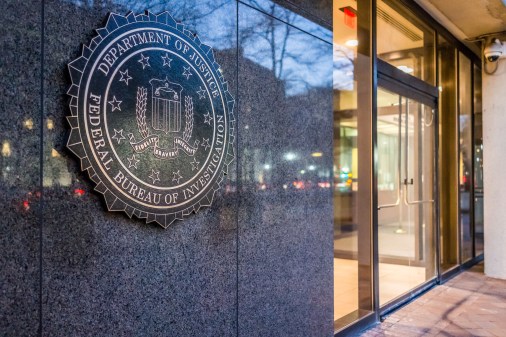A remote-work headache for the FBI: Accessing unclassified data is harder than it should be

The coronavirus pandemic is forcing the FBI to rethink how it organizes its unclassified data, with the goal of making more of it available through remote access in the cloud.
The challenge is that a lot of unclassified data resides on FBI legacy systems that otherwise are not available remotely, said Gurvais Griss, assistant director of the Science and Technology Branch at the FBI Laboratory. With much of its workforce online from home, the bureau now wants confidential, secret and top secret networks “appropriately” integrated with a cloud platform so “relevant” intelligence within them can be shared more easily, he said.
The job involves tagging, flagging and moving the unclassified data to a lower-classification environment, Griss said during an Armed Forces Communications and Electronics Association, Bethesda forum Thursday.
“At the lab … we have systems, business processes, administrative actions that previously were done on the higher classification network — not necessarily because they require that level of protection. It’s just we organically designed it where people felt comfortable,” he said. “Well, we now made a concerted effort to move it to a lower-classification environment.”
The FBI Lab also instituted structured, non-overlapping schedules during the pandemic allowing employees to come into their offices, perform sensitive work and then push unclassified data to a platform for remote access.
FBI Criminal Justice Information Services is working on pulling information into a data lake for faster analysis and response, but better tools are needed for making connections, Griss said. Investigations involve data from social media, communications intercepts, mobile devices, and system and security logs that often need reformatting.
The FBI also can’t simply move all data to the cloud overnight due to budget constraints and the possibility missions might be disrupted, Griss said.
“You’re going to see, over the next several years, a massive amount of effort across the federal government and in industry of: How do we move data to the point of service?” he said.
“This genie is never going back in the bottle.”






